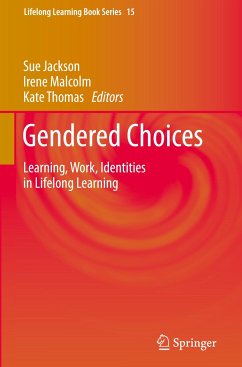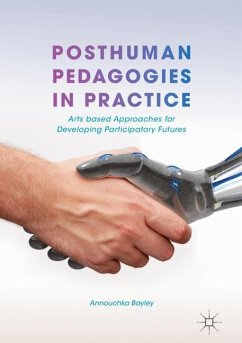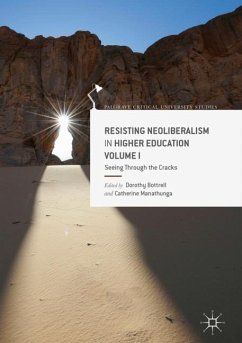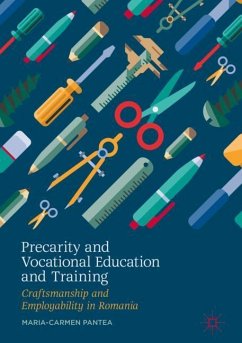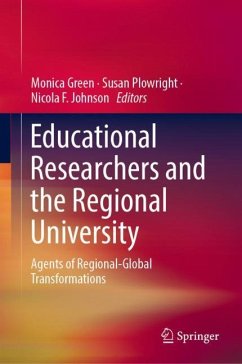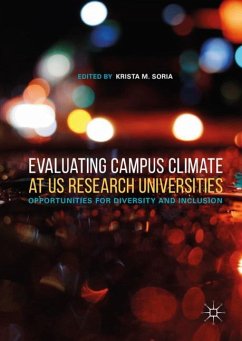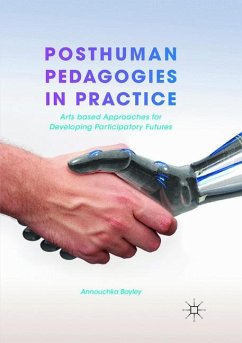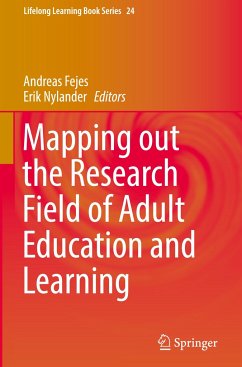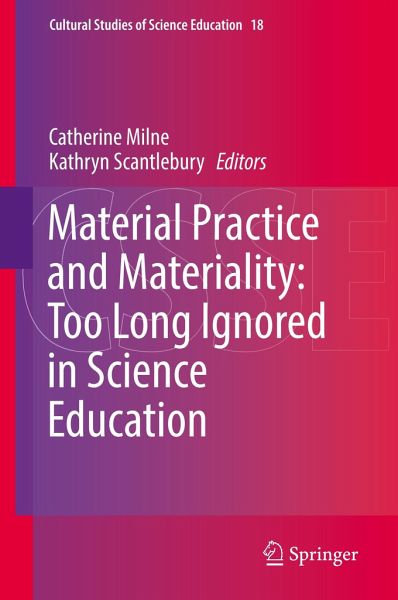
Material Practice and Materiality: Too Long Ignored in Science Education

PAYBACK Punkte
46 °P sammeln!
In this book various scholars explore the material in science and science education and its role in scientific practice, such as those practices that are key to the curriculum focuses of science education programs in a number of countries.As a construct, culture can be understood as material and social practice. This definition is useful for informing researchers' nuanced explorations of the nature of science and inclusive decisions about the practice of science education (Sewell, 1999). As fields of material social practice and worlds of meaning, cultures are contradictory, contested, and wea...
In this book various scholars explore the material in science and science education and its role in scientific practice, such as those practices that are key to the curriculum focuses of science education programs in a number of countries.
As a construct, culture can be understood as material and social practice. This definition is useful for informing researchers' nuanced explorations of the nature of science and inclusive decisions about the practice of science education (Sewell, 1999). As fields of material social practice and worlds of meaning, cultures are contradictory, contested, and weakly bounded. The notion of culture as material social practices leads researchers to accept that material practice is as important as conceptual development (social practice).
However, in education and science education there is a tendency to ignore material practice and to focus on social practice with language as the arbiter ofsuch social practice. Often material practice, such as those associated with scientific instruments and other apparatus, is ignored with instruments understood as "inscription devices", conduits for language rather than sources of material culture in which scientists share "material other than words" (Baird, 2004, p. 7) when they communicate new knowledge and realities. While we do not ignore the role of language in science, we agree with Barad (2003) that perhaps language has too much power and with that power there seems a concomitant loss of interest in exploring how matter and machines (instruments) contribute to both ontology and epistemology in science and science education.
As a construct, culture can be understood as material and social practice. This definition is useful for informing researchers' nuanced explorations of the nature of science and inclusive decisions about the practice of science education (Sewell, 1999). As fields of material social practice and worlds of meaning, cultures are contradictory, contested, and weakly bounded. The notion of culture as material social practices leads researchers to accept that material practice is as important as conceptual development (social practice).
However, in education and science education there is a tendency to ignore material practice and to focus on social practice with language as the arbiter ofsuch social practice. Often material practice, such as those associated with scientific instruments and other apparatus, is ignored with instruments understood as "inscription devices", conduits for language rather than sources of material culture in which scientists share "material other than words" (Baird, 2004, p. 7) when they communicate new knowledge and realities. While we do not ignore the role of language in science, we agree with Barad (2003) that perhaps language has too much power and with that power there seems a concomitant loss of interest in exploring how matter and machines (instruments) contribute to both ontology and epistemology in science and science education.





